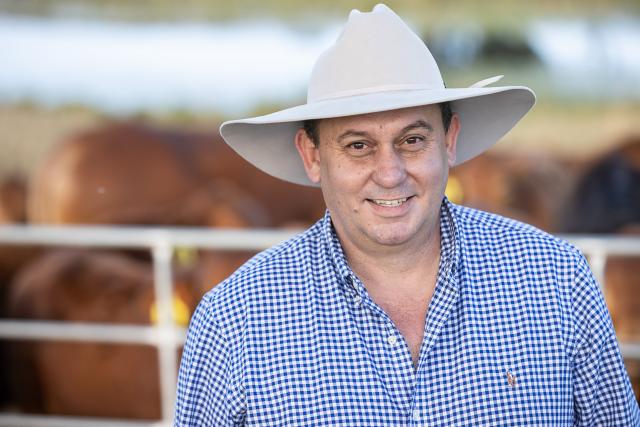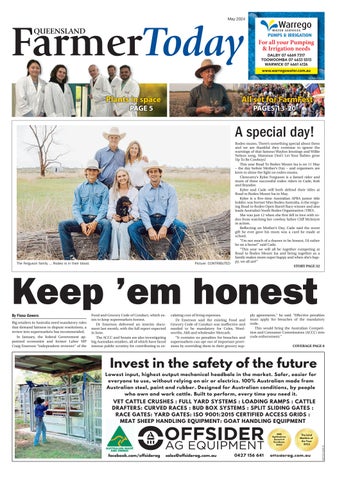An impressive list of businesses located throughout Australia are keen to collaborate with AAM Investment Group as it seeks to assume control of the Longreach Pastoral College.
In February, AAM, which operates five agricultural assets at Blackall and the Western Queensland Livestock Exchange (WQLX) in Longreach, submitted a tender on behalf of the consortium.
Later that month at Longreach Civic Centre, AAM introduced to the public its plan for a consortium to bid for control of the college’s assets.
AAM Investment Group managing director Garry Edwards said the nationwide response to the announcement had been unprecedented.
“This goes well beyond our wildest expectations,” he said.
“In a very short period – we are only talking a few weeks – the level of interest generated outside of those with a direct agricultural connection is actually quite phenomenal.
“We were hoping for potentially 500 letters of support so to end up with 3300 – and the sheer volume that continues to come in after that – is quite astonishing.
“It just shows you how the college has touched many, many people who are passionate about it.
“It has certainly got far reaching engagement well beyond the boundaries of the Longreach town limits in regards to what the college does.”
The AAM bid, which included 17,511 hectares of land, classroom facilities and agricultural infrastructure, was the only submission made public.
To date, 10 beef cattle pastoralists – Australian Country Choice, Cleveland Agriculture, Consolidated Pastoral Co, the Curr family, Georgina Pastoral, Hewitt Cattle Australia, MDH, Mort and Co, NAPCO, AAM – and seven educational institutes – have committed to a role in the consortium.
Mr Edwards said if AAM’s proposal was successful, it may offer veterinary studies, tourism activities, education for school students to experience regional Australia, commercial farming enterprises and providing reliable employment opportunities within the western Queensland region.
“Ideally, we want to create a diverse range of courses of which agriculture is fundamental to many,” he said.
“There is a lot of interest in undertaking some regenerative agricultural courses and actually using the surrounding land area as a great demonstration site.
“There is a common need here for a common outcome and, ultimately, that need goes far beyond the individual companies directly involved in the consortium.”
Mr Edwards said AAM, like the other consortium members, are invested in the region.
He said northern Australia needed first-rate agricultural management training as currently, students had to leave the state for two years.
“There is nothing here that allows them to continue to be actively engaged and complete specific short courses,” Mr Edwards said.
“We’re hopeful that we will find a solution that allows people to continue working in our businesses but also get some additional training and experience to further enhance their careers.
“Prior to the state government assuming control, Longreach Pastoral College had a strong reputation nationally.
“They had a strong focus on developing and preparing grounded employees or future management candidates for a diverse range of agricultural production interests.
“It created a great opportunity for young people to leave school at year 10 or at high school completion and become equipped with practical skills.
“It broke the mould of what was the traditional high school system and stepped them into the real world.”
The outcome is now in the state government’s hands.
“We want to secure this for generations to come,” Mr Edwards said.
“This is the first real example where you’ve seen private enterprise step up and say, ‘You know what? We can do this’.
“We would expect and hope to get some level of engagement from the government representatives assessing this to understand what we’re proposing more holistically.
“Ultimately, I think we’ve done all we can at this point in time. It’s kind of out of our hands now.
“And, given the resounding level of public interest, it would be nice to think that we can get a positive outcome”.









